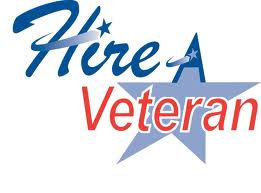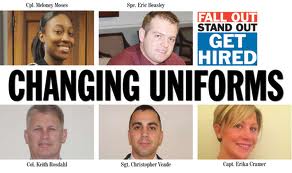Feb
2
by Janet J. Seahorn, Ph.D

Recently, Tony and I visited with a group of veterans from the Military Order of Purple Heart. Attending were vets from WWII, Korea, Vietnam and the current conflicts. While discussing our book, Tears of a Warrior and the issues of PTSD, we got on the topic of how challenging it is for veterans returning from war to find a job. Only in recent times has the issue of work for veterans become clearer.
Many of us thought veterans who came home from serving in WWII were greeted with big parades and wonderful new career opportunities. For years I was under such an assumption. Then I talked with several WWII veterans and what they described was something much simpler. For most, once they returned home they did what historically other veterans had done before them… they went home, tried to find a suitable job and raise a family. Little was written or said about the struggle in finding employment or integrating back into civilian life. For many, there were no parades, no bands welcoming them home, only the test of getting on with life.

Eric Jensen explains in his book about his father, Forever and a Day: The World War II Odyssey of an American Family, how hard it was to find work after the war. As he wrote, many of the jobs were already filled by civilians who had those positions during the war. When the veterans returned there were not as many opportunities for employment as we first believed. Jensen wrote how frustrating it was for his father to have spent so many years away from his family only to return to another struggle – finding a job that would pay enough to support his young family.
Today, too many employers believe erroneously that vets returning from Iraq and Afghanistan may be suffering from PTSD or TBI and are reluctant to hire someone who may be emotionally compromised. We have written on several occasions how this is simply not the case for the majority of combat personnel. Military personnel have proven over and over again that they are bright, committed and competent employees. Given a task, they will make sure it gets completed in a satisfactory manner. They will show up daily, even when they are tired or under the weather. Veterans are some of the most proficient and capable members of an organization.

Part of the healing process of our soldiers, both young and old is to value their sacrifice for our country by honoring them with suitable jobs. One struggle we can help them avoid is a struggle to find work. As a country and as a community perhaps offering employment can be a step of vast significance.
In addition to mending them, “If we send them, let’s then employ them” when they return.

Comments

